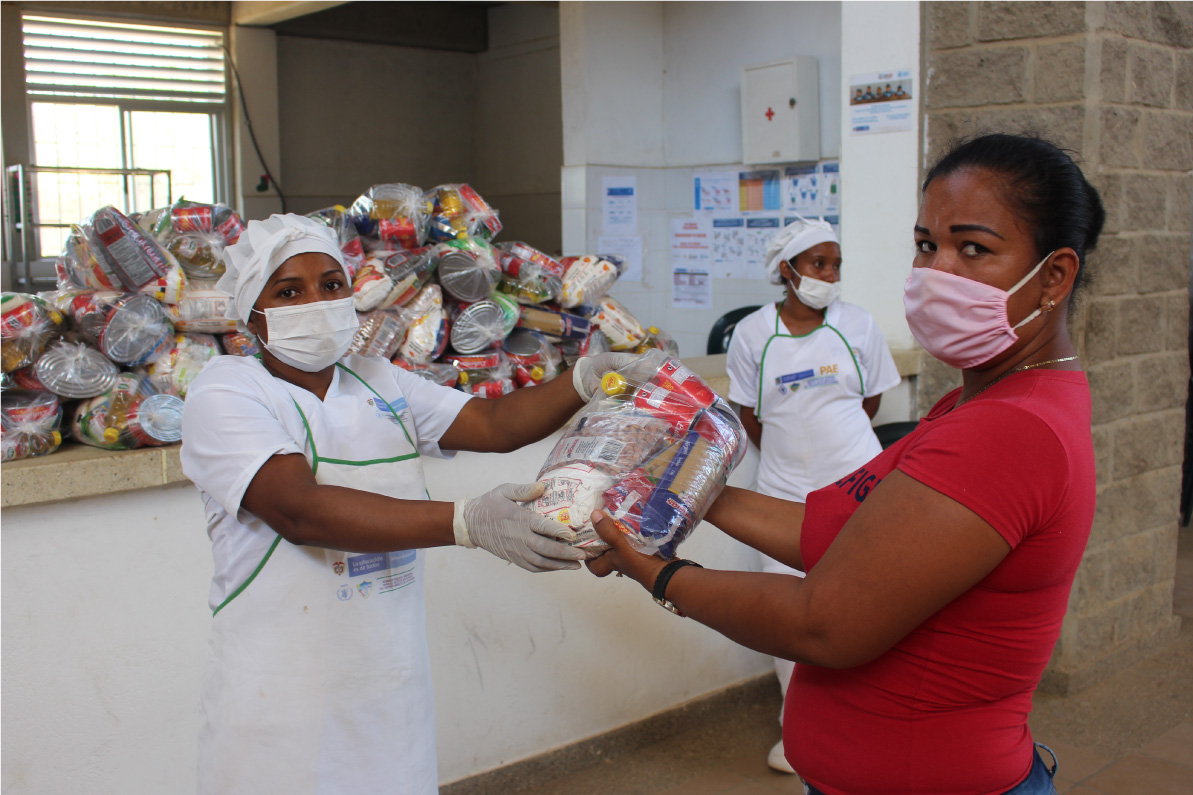
How to make alternative feeding modalities sustainable and safe for the duration of the COVID-19 crisis? In this session organised by the Global Child Nutrition Foundation (GCNF), presenters shared good practices, possible roadblocks, and other opportunities to continue and sustain school feeding programmes for schools that don’t plan to reopen soon. During his presentation, Daniel Balaban, Director of the WFP Centre of Excellence against Hunger Brazil, described the work of the Centre in supporting counties and sharing relevant information on alternative models being adopted in Brazil and in other countries.
He highlighted that we have started supporting countries remotely even before the pandemic, launching the Remote Assistance methodology in 2019. That allowed us to continue to support countries during the pandemic, which imposed travel restrictions across the globe. Daniel Balaban also talked about the main alternatives for keeping school feeding programmes running during the pandemic, such as cash transfers, food baskets, take-home rations and ready meals. “We have all four options in place in Brazil at the moment and the local governments are working hard to support children during this period”, he said.
The director also mentioned other forms of support we are offering to countries, including publications, guidelines, videos and remote technical support. He closed his remarks by inviting panellists and the audience to think about how we can contribute to change the way we do things in order to respond to new challenges countries will face once the epidemic is over. “We need to take advantage of the pandemic and open our minds and make things differently, creating a new world. It is possible”, said Daniel Balaban.
Click here to watch the full webinar and access presentation materials





